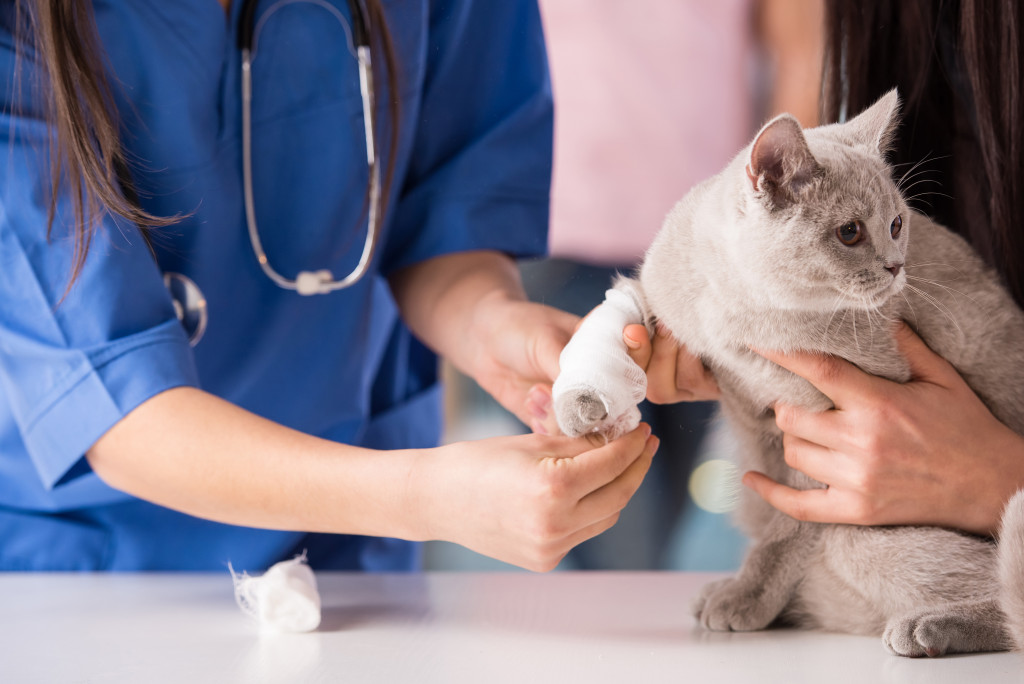Cats are some of the most common pests in the United States. It’s estimated that about 95 million cats live with families in the country. Many of these families love their cats and treat them as family members. However, cats can quickly get sick, and cats with first-time owners are the most vulnerable.
Knowledge is one way to protect your cat from getting sick. Learning about the unique health problems that affect cats can help you catch them early and get your cat the treatment they need. Here are four unique diseases for cats and to treat them.
Feline Immunodeficiency Virus (FIV)
FIV is a virus that attacks a cat’s immune system. It’s a disease that was found back in 1986 and, since then, has been seen in cats all over the world.
FIV is most commonly spread through bites, so outdoor cats or cats fighting are at a higher risk. Additionally, the virus can also live in the fur of many cats and wait there until it can infiltrate an exposed wound. Moreover, the virus can also be passed from a mother to her kittens during pregnancy or birth. The various symptoms of FIV include weight loss, fever, poor coat condition, and anemia.
The worse symptoms can lead to death, so it’s essential to take your cat to the vet as soon as you notice any changes. Unfortunately, there is no cure for FIV, but there are treatments that can help improve your cat’s quality of life.
One of the best ways to prevent FIV is to keep your cats indoors. By doing this, you can decrease the chance of infection through social interaction. Another way is to keep your cat groomed. As stated earlier, the various can live in a cat’s fur, so you can help keep your cat healthy and FIV-free by getting cat grooming services often. A groomed cat is less likely to get FIV. Moreover, getting your cat groomed often can also reduce other forms of bacterial infection.

Feline Leukemia Virus (FeLV)
Like FIV, FeLV is a virus that attacks a cat’s immune system. The virus is most commonly spread through social interaction, so cats around other cats are at a higher risk. The various symptoms of FeLV include weight loss, fever, poor coat condition, and anemia.
The worse symptoms can lead to death, so it’s essential to take your cat to the vet as soon as you notice any changes. There is no cure for FeLV, but there are treatments that can help improve your cat’s quality of life.
One of the best ways to prevent this is vaccinations. The vaccinations for FeLV are not 100% effective, but they are the best way to help reduce the risk of your cat contracting the virus. Another way to help reduce the risk is by keeping your cat indoors.
Feline Infectious Peritonitis (FIP)
FIP is a disease caused by a virus that infects a cat’s intestines lining. The virus is most commonly spread through social interaction, so cats around other cats are at a higher risk. However, it can also spread through contaminated food and water. The various symptoms of FIP include weight loss, fever, poor coat condition, and anemia.
The worse symptoms can lead to death, so it’s essential to take your cat to the vet as soon as you notice any changes. Diagnosis usually requires specialized tests so that it won’t be mistaken for other diseases common to cats.
There is no cure for FIP, but there are treatments that can help improve your cat’s quality of life. Ensuring that your cat has access to clean food and water can drastically reduce the chances of FIP, and much like any disease on this list, vaccinations can also help reduce the chances of infection.
Pyometra
Pyometra is a uterine infection common in cats that have not been spayed. The disease is caused by bacteria that enter the uterus through the cervix. The various symptoms of pyometra include weight loss, fever, poor coat condition, and anemia.
The worse symptoms can lead to death, so it’s essential to take your cat to the vet as soon as you notice any changes. There is no cure for pyometra, but there are treatments that can help improve your cat’s quality of life.
One of the best ways to prevent pyometra is to have your cat spayed. This will remove the uterus and ovaries, and therefore the infection can not take hold. If your cat is not spayed, it’s essential to keep them away from other cats in heat. This will help reduce the chances of infection.
Pyometra, FIV, FeLV, and FIP are all serious diseases that can lead to death if not treated. Therefore, it’s essential to be aware of the symptoms and know how to prevent them. The best way to avoid these diseases is through vaccinations and keeping your cat indoors.



